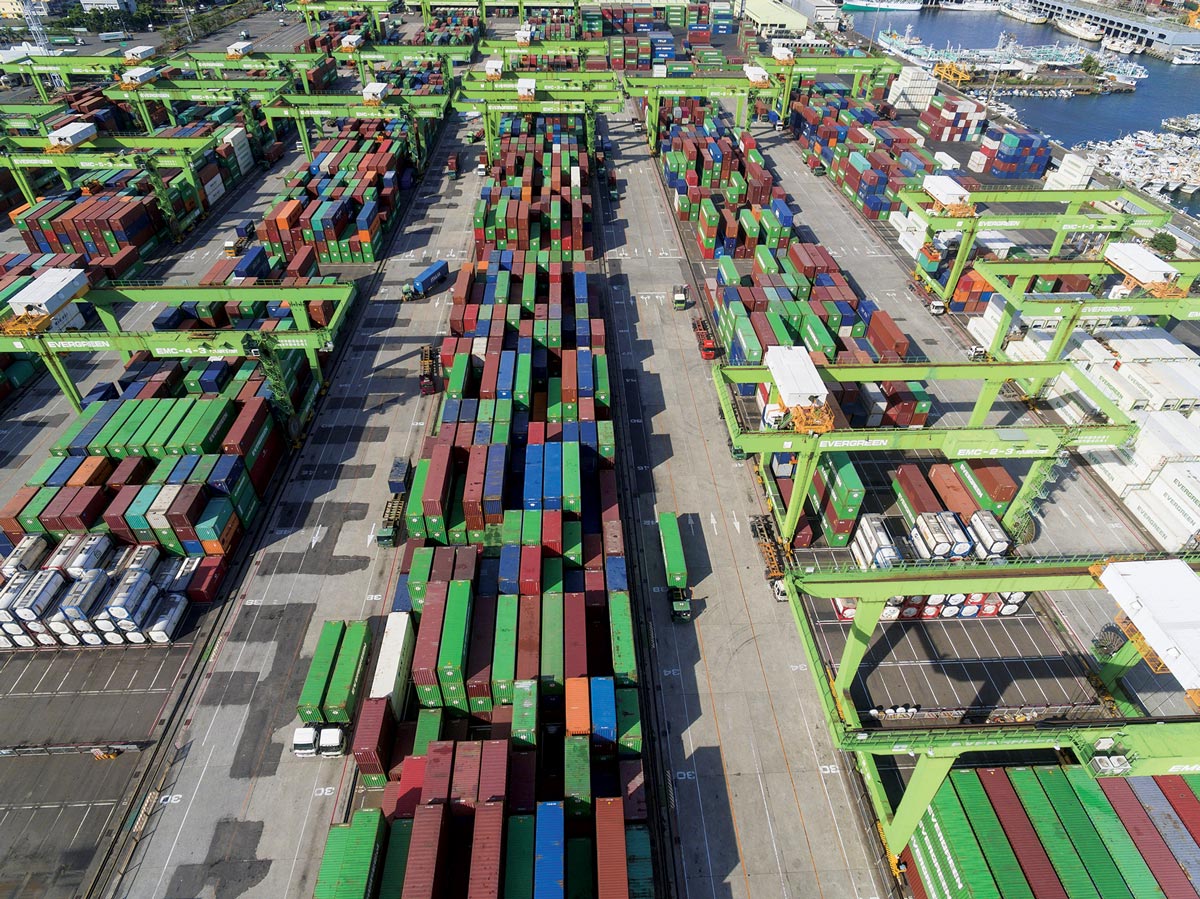G7 Executive Talk Series
Branded Story / TCG
Authored by: Neil Hare
Taiwan Matters:
The G7 Must Consider International Recognition, Increased Trade
As all members of the G7 rethink and contemplate their trade relationships with each other and the world, it is important to remember that Taiwan matters, and should be prominently considered for enhanced commerce
and international recognition.
As the United States, the United Kingdom, Japan and all members of the G7 rethink and contemplate their trade relationships with each other and the world, it is important to remember that Taiwan matters, and should be prominently considered for enhanced commerce and international recognition.
The Asian region is a focal point for many top issues in the world today, most notably perhaps the denuclearization of North Korea, and the upcoming talks between U.S. President Donald Trump and Korean leader Kim Jong Un. Furthermore, almost everything in the region is seen through the lens of the Chinese and their role in negotiations with Pyongyang, as well as their trade relationship with the United States.
With recently announced tariffs on Chinese goods by the Trump Administration, and retaliatory tariffs by China, the stakes have gone up both economically and strategically. On April 18th China also engaged in war games in the Straight of Taiwan aimed at sending a message to Taiwan and its close U.S. ally.
Therefore, the island nation of Taiwan, which is not recognized diplomatically by the G7 countries or any major world powers for that matter, sits right in the middle of a very high stakes poker game. And as in poker, bluffing can only take you so far. Having the best cards produces the winning hand.
To that end, it’s important to look at what cards Taiwan holds – both economically and its stature as a trading partner. With a population of only 25 million people, Taiwan boasts the 11th largest economy in the world. According to the United States Trade Representative (USTR), Taiwan was the U.S.’s tenth largest goods trading partner in 2016, with $65.3 billion in total (two way) goods traded (the most current data available). Trade in services with Taiwan totaled $19.4 billion in 2016.
Similarly trade between the European Union and Taiwan has increased more than eightfold over the past two decades. In 2011, Taiwan was the EU’s seventh largest trading partner in Asia.
![]() While China may consider Taiwan as part of its own nation, the international community, especially the United States, will not allow China to invade or absorb Taiwan in any manner.
While China may consider Taiwan as part of its own nation, the international community, especially the United States, will not allow China to invade or absorb Taiwan in any manner. ![]()

The top export categories in 2016 included machinery ($5.4 billion), aircraft ($3.2 billion), optical and medical instruments ($1.8 billion) and organic chemicals ($824 million). Taiwan also represented the United States’ 7th largest agricultural export market, with leading domestic export categories including soybeans, corn, beef, wheat and fruit.
While the United States has a clear interest in a strong and independent Taiwan, all other G7 nations share a similar economic interest in this strategic ally. Despite these strong relationships, the international community still refuses to formally recognize Taiwan, and keeps it in a state of diplomatic limbo, where it has been since the early 1950’s. While China may consider Taiwan as part of its own nation, the international community, especially the United States, will not allow China to invade or absorb Taiwan in any manner.
One major organization in Taiwan, the Taiwan Civil Government (TCG), calls for stronger economic ties with the United States, all G7 nations, and the international community. Led by Dr. Roger Lin, the TCG wants to build on these strong ties and trading relationships to enhance the stability of Taiwan and ensure lasting peace in the region.
The recently enacted U.S. law “The Taiwan Travel Act”, opened the channels for greater U.S. involvement in Taiwan through more official travel between the island nation and U.S. government leaders. In addition, on April 19, four U.S. Senators, Republicans and Democrats including James Inhofe (R-OK) and Bob Menendez (D-NJ), introduced legislation calling for the Secretary of State to develop a strategy to help Taiwan regain observer status with the World Health Organization. The TCG supports these actions and looks forward to being an even more active participant in enhanced trade relations with the U.S. and the G7 nations. With over 70,000 members, including business leaders and representatives from all sectors of Taiwan’s community, the TCG seeks a diplomatically recognized Taiwan, and an even stronger relationship with the United States and the G7 nations. As politics, trade and diplomatic issues continue to heat up in that region, the world has a strong partner
in the TCG and Taiwan. And, it matters.
Editor’s Note: This material is distributed by Global Vision Communications on behalf of the Taiwan Civil Government. Additional information is available at the Department of Justice, Washington, DC.
Neil Hare is President and CEO of Global Visions Communication, a Washington, DC-based PR and Marketing Agency. He is a writer, creative think tank and an expert on communications and business strategy.